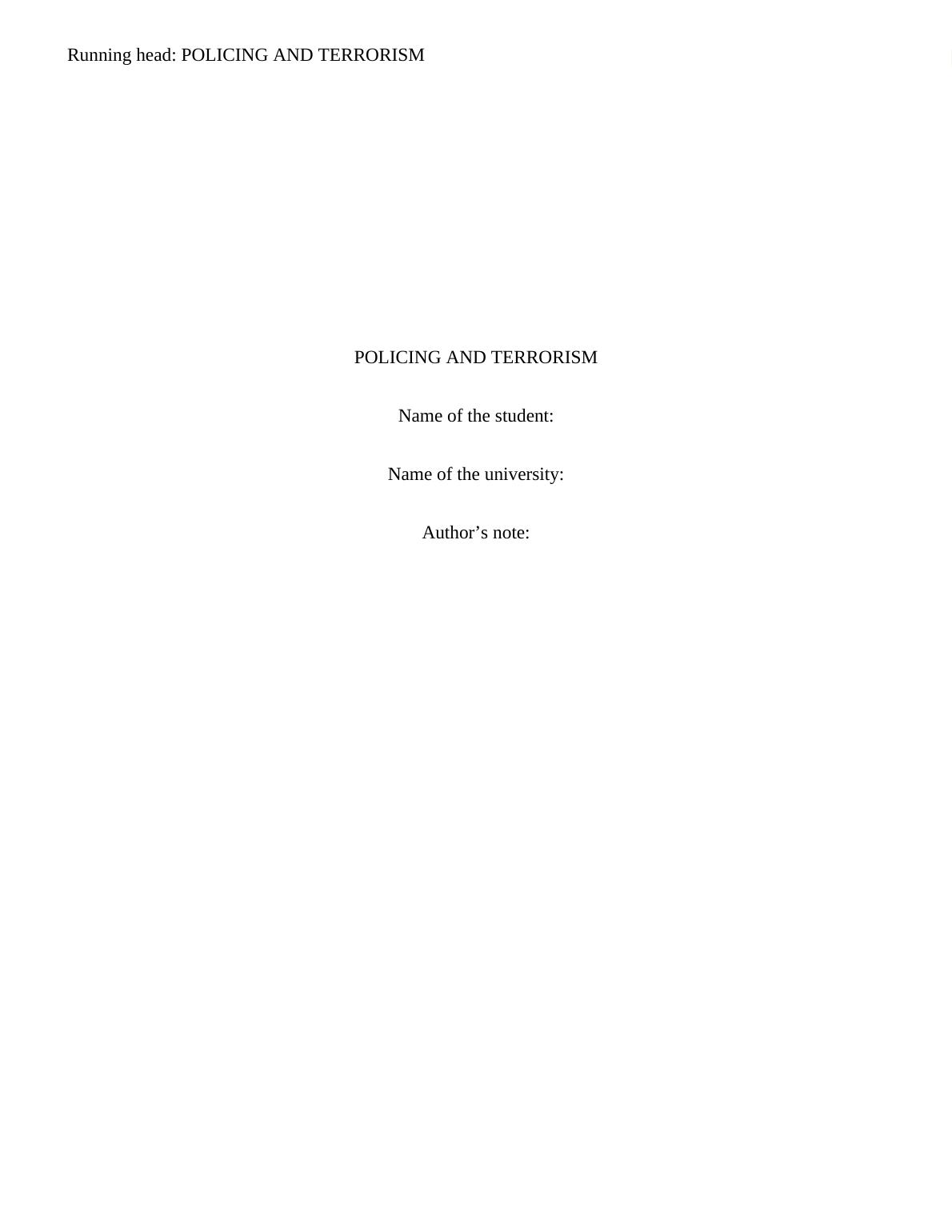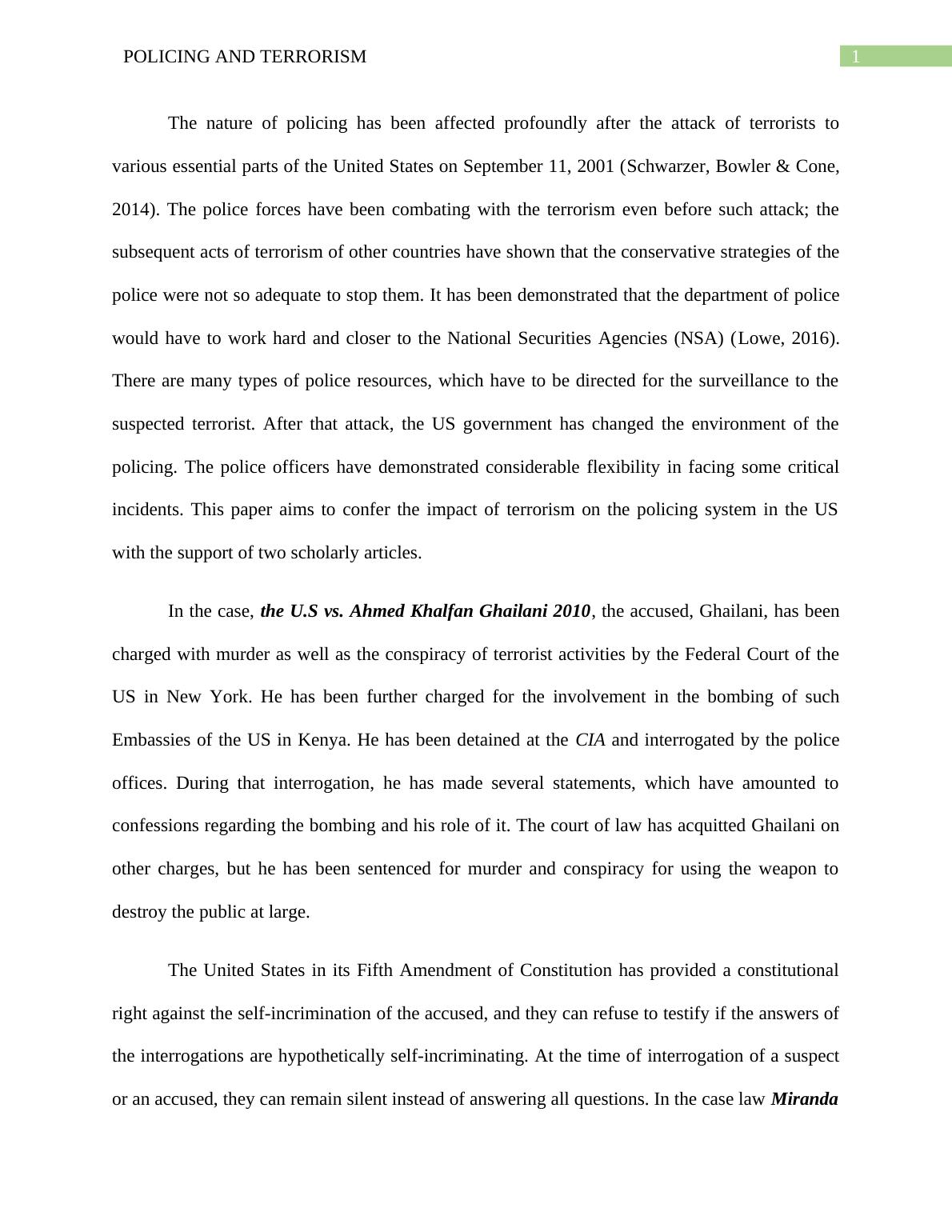Impact of Terrorism on the Policing System
5 Pages1136 Words11 Views
Added on 2022-08-18
Impact of Terrorism on the Policing System
Added on 2022-08-18
ShareRelated Documents
End of preview
Want to access all the pages? Upload your documents or become a member.
Constitutional Law Fifth Amendment.
|13
|1013
|10
Miranda Warning: History, Effects of Breach and Importance
|7
|1833
|250
Common Law for Crime Confession in Canada: Assignment
|8
|1863
|68
Miranda vs Arizona, 384 U.S. 436 (1966) Facts of the Case
|3
|394
|357
Criminal Procedure: John Doe's Case
|6
|992
|262
Berghuis v. Thompkins: Miranda Rights and Waiver
|17
|5089
|52


